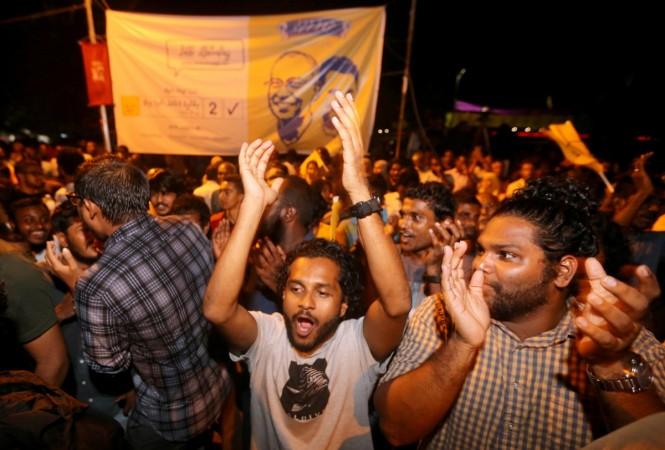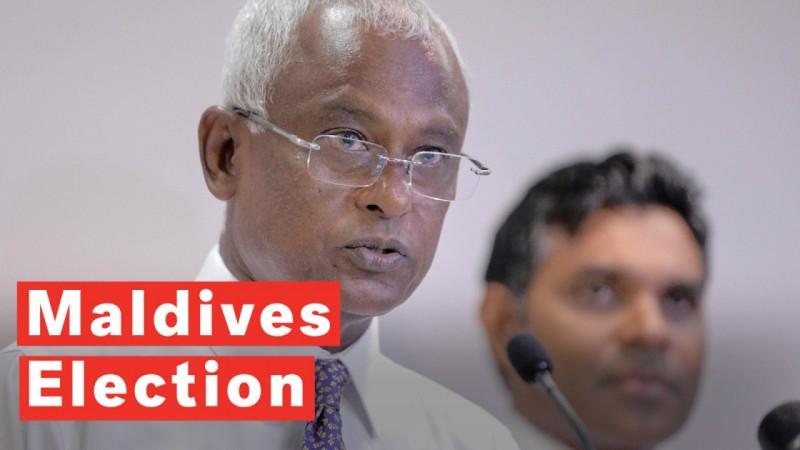
It has been reported that Prime Minister Narendra Modi's first foreign tour in his second term will be to Maldives. The choice of Maldives over high-profile capitals has great symbolic value inasmuch as how Modi shapes up two major foreign policy themes going forward -- India's security challenges and dealing with the threat from China.
Maldives, which lies just 700 km across the Lakshadweep islands, has a unique distinction. Going by the per capita norm, the tiny archipelago nation with a population of 400,000 people was the biggest contributor of foreign fighters to the Islamic State (Isis) terror movement in Iraq and Syria. As many as 450 radicalised Maldivians had travelled to the Daesh hotspots in the Middle East.
Scores of these jehadi fighters have since then returned to Maldives, posing security challenges not only to the island nation but neighbouring countries like India. Even before the Isis attracted a wave of fighters from Maldives, the Pak-sponsored Lashkar e-Taiba (LeT) had hatched a plan to make Maldives an active link in the chain -- alongside Sri Lanka, Bangladesh and Malaysia -- that encircles India.

Swelling ranks of jehadi fighters in Maldives
The recent macabre bombing in Sri Lanka has heightened the terror threat for India. India's deep state has been watching with alarm the swelling ranks of jehadi fighters in Maldives, Sri Lanka and Bangladesh that aim to destabilise India. The vast network of terror organisations operating in the region nurse the hope of establishing a Caliphate in the arc stretching from the Middle East to South East Asia.
Their biggest obstacle is the Indian state that has responded with alacrity to any possible terror threat in recent years. This is manifest in the fact that India passed on clear warnings to Sri Lanka days before the Easter Sunday terror attacks that killed more than 250 people.
Indian authorities said in 2016 that nearly two dozen radicalised Indian youth had moved to Afghanistan to be part of the Isis wing that focused on spreading its tentacles in a region comprising southern Indian states, Maldives, Sri Lanka and Bangladesh. This new affiliate was known as the Islamic State-Khorasan Province (IS-KP). This unit was initially headed by Pakistan-based Tehreek-e-Taliban Pakistan (TTP) operatives.
In Bangladesh, the current government of Sheikh Hasina is arguably acting in India's security interests, as she continues to bust terror networks with an iron hand. The fact that Hasina has been able to keep Begum Khaleda Zia, who is closer to Pakistan and China, away from power in Dhaka has been a boon for India.
However, Maldives remained a problem for India for more many years, with Yameen taking the country closer to China and undermining India's traditional influence. In 2017 Maldives became only the second country after Pakistan to sign a free trade agreement with China. Beijing also funnelled funds into Maldives, taking up maritime and infrastructure projects worth billions.
Watershed moment
With India's influence in the archipelago diminishing, the potential terror threat from the pro-Isis cells operating out of Maldives grew. But the watershed moment was the overthrow of the Yameen government with the help of exiled ex-president Mohammad Nasheed, who was ably supported by New Delhi.
Immediately after Modi's visit to Maldives, Reuters reported that the country was planning to withdraw from the free trade pact with China. India also offered a $1.4 billion financial package for Maldives.
China's influence in Maldives cannot be rolled back in a day but it's highly important for India to engage Maldives creatively. On the security front, increasing Indian footprint in Maldives will greatly help in defusing the anti-India cells gaining influence in that country.
The fact that Modi has decided to travel to Maldives at the very beginning of his second term augurs well for India's immediate security interests in the region.

















